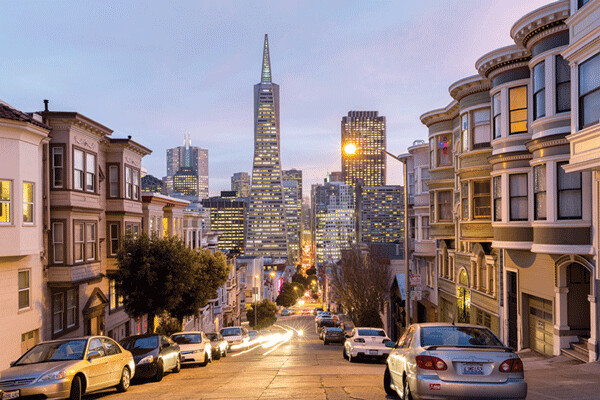News & Articles
Browse all content by date.

Dear EarthTalk: Driving around and around city blocks looking for parking seems like a colossal waste of fuel (and time). Is anyone working on ways to reduce this extra traffic and emissions burden?
- Bernice Mickelson, New York, NY
It’s true that we waste lots of gas and time—and create lots of stress for ourselves—in the constant search for parking spaces. UCLA urban planning professor Donald Shoup and his students observed hundreds of cars driving around four sites in Los Angeles’s bustling Westwood Village, a commercial district next to the UCLA campus, and found about one in three drivers was “cruising” in search of a spot. On average, each cruising driver spent only 3.3 minutes on the hunt over about a half-mile in distance — but the numbers add up quickly, given that some 8,000 cars park in Westwood Village each day.
“Over a year, cruising in Westwood Village creates 950,000 excess VMT [vehicle miles traveled]—equivalent to 38 trips around the earth, or four trips to the moon,” says Shoup. This excess mileage in just one small business district waste some 47,000 gallons of gasoline while producing 730 tons of CO2 emissions annually. Shoup thinks crowded metro areas should increase the price of street parking to make it cost as much or more than commercial or private parking garages so as to discourage all this wasteful cruising and force drivers into dedicated parking facilities where they won’t slow down other motorists.
Luckily there’s a slew of new services that make it easier than ever to park responsibly. BestParking, Parking Panda, Parker, ParkWhiz and ParkMe each provide users with access to hundreds of garages and lots in major cities across the U.S. through easy-to-use Smartphone interfaces. SpotHero works on a similar model but also offers up its own dedicated discounted spots in select parking facilities.
Meanwhile, SpotOn Parking is using San Francisco as a testing ground for its new service connecting drivers with property owners looking to monetize under-utilized parking spots. Users of the free SpotOn app can search for available spaces nearby—and reserve and pay with the click of a virtual button.
Of course, another way to reduce the need to park is to embrace public transit and ridesharing. If you ride the bus or train—or walk or bike—you won’t have to waste time or fuel looking to park. Another way to avoid parking hassles is by using Uber or Lyft, or by joining a car-share service like Zipcar which provides dedicated parking spots all around town for its vehicles.
At the meta level, American cities could follow the lead of some of their forward-thinking European counterparts like Antwerp and Zurich which have significantly reduced the overall number of (private and public) parking spaces available, in turn leading to a measurable downturn in vehicle miles travelled within city limits. If people have nowhere to park, they won’t bother driving their own car into the city.
While encouraging people to use public transit, car sharing or at least parking apps is a step in the right direction, policy changes that reduce the number of spots altogether might be our best bet in reducing gas consumption, carbon emissions and the waste of time we all experience hunting for that next parking spot.
EarthTalk® is produced by Roddy Scheer & Doug Moss and is a registered trademark of the nonprofit Earth Action Network. Send questions to: question@earthtalk.org.
| Tweet |


